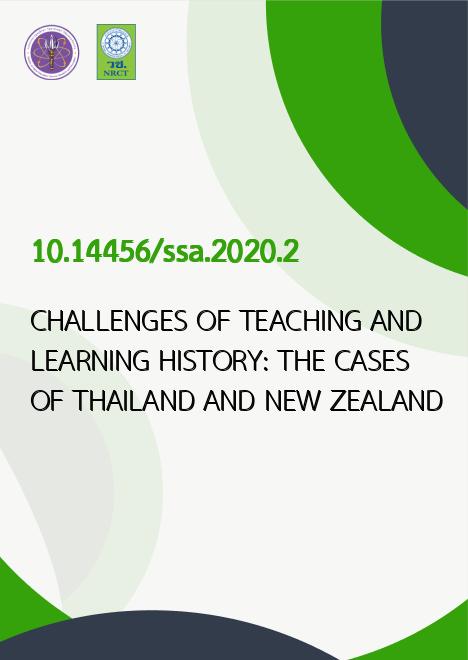
|
CHALLENGES OF TEACHING AND LEARNING HISTORY: THE CASES OF THAILAND AND NEW ZEALAND |
|---|---|
| รหัสดีโอไอ | |
| Creator | Suphisara Chinakkarapong |
| Title | CHALLENGES OF TEACHING AND LEARNING HISTORY: THE CASES OF THAILAND AND NEW ZEALAND |
| Publisher | National Research Council of Thailand |
| Publication Year | 2563 |
| Journal Title | Official Journal of National Research Council of Thailand In conjunction with the International Journal of Multiculturalism and Education |
| Journal Vol. | 6 |
| Journal No. | 1 |
| Page no. | 1-12 |
| Keyword | challenge, teaching and learning, history, knowledge, curriculum issues |
| URL Website | http://e-journal.nrct.go.th/ |
| Website title | e-journal |
| ISSN | 2229-2609 |
| Abstract | History, in many countries around the world, tends to be undermined (de Oliveira,2008; Vickers, 2016). It is essential to learn about controversial historical issues in order to participate constructively as citizens in a democratic society (Sheehan, 2017). This is a trigger to the quest of powerful knowledge. After reviewing literature concerning curriculum issues nationally and internationally, this article attempts to discuss the challenges of teaching and learning history in Thailand and New Zealand regarding an educational curriculum setting. The article begins with a historical background of the two countries, their curriculums, purposes and how history teaching and learning are conveyed in the two countries. Then, the discussion proposes three arguments. Firstly, the state's strictly prescribed curriculum of Thailand challenges teachers' autonomy to teach well-rounded history critically and effectively. Secondly, a high-autonomy curriculum of New Zealand leaves teachers with facing challenges of teaching history and struggling on their own. Lastly, controversial historical events matter in developing young people to constructively participate in a democratic society that is aiming to build social cohesion. |